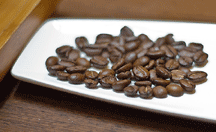Exotic Cats Make the Best Coffee
When buying $80-a-pound coffee, know what you’re paying for
by Dick Wilson
We Americans like our coffee. But to get the best coffee on Earth, I have to travel halfway around the planet to Indonesia.
From that far away land comes Kopi Luwak, which is — according to some — not only the world’s best coffee but also the most expensive. The seller will, with a straight face, ask you to shell out 80 bucks or more for a pound of this stuff, which might prompt you to ask how they can expect to get such an outrageous price. Surely, the taste alone, no matter how excellent, can’t justify the cost. What is it, then? The answer has to do with where it comes from.
Most of the world’s good coffee, from Costa Rica, Africa, Hawaii, Brazil, Jamaica and many other places in between, comes from tropical highlands.
Coffee beans are harvested when they are ripe. Beans in any condition other than perfectly ripe are inferior and will produce inferior-grade coffee. Ripe beans have a red, cherry-like appearance. Once picked, the inner bean is roasted and becomes coffee.
Like all the other good coffees, Kopi Luwak is grown in mountainous areas, except that this coffee comes only from the Indonesian islands of Java, Sulawesi and Sumatra. What makes Kopi Luwak unique is that the animal kingdom supplies the workforce that does most of the harvesting and processing.
In Indonesia there lives a small cat-like marsupial, the Asian palm civet (paradoxorus).
I’m not making this up.
Paradoxorus lives in trees — preferably in coffee trees. The animal likes ripe coffee beans. Paradoxorus has the ability to detect, via its acute sense of smell, the perfectly ripe beans, which it eats, leaving the green inferior beans to grow into maturity unmolested. Paradoxorus eats the ripe beans, but here’s the twist: the animal digests only the outer shell, leaving the inner bean to pass through its digestive system practically unchanged.
Practically unchanged? This probably sounds like I’m trying to sell you something, but practically unchanged means that the civet’s digestive juices interact chemically with a substance in the inner coffee bean shell to eliminate proteins that cause the bitter taste in coffee. The trip through the digestive tract also produces a partial fermentation, resulting in a taste described as earthy, musty, syrupy, smooth and rich with jungle and chocolate overtones.
The plantation workers (let’s call them scoopers, because pickers doesn’t really seem to describe what they do) go through the coffee forests in search of Paradoxorus droppings, which they collect and take to the mill. The beans are intact and stuck together in a mass (reportedly odorless) resembling a Baby Ruth candy bar. That’s what gets shipped to the distributors.
Animal Coffee is the name of an Indonesian corporation (one of several) that specializes in Kopi Luwak. To ensure that they have the genuine Paradoxorus product, the corporation requires the growers to deliver the, shall we say, partially processed coffee bean; that is to say, the grower must deliver the Paradoxorus output in the same state it is found on the forest floor. If the beans have been separated from one another (as can happen, for example, if they are rained on during the rainy season), Animal Coffee can’t be sure they’ve got the real thing.
For $80, Animal Coffee will sell you a pound of the product in the same state as they get it from the grower: hot off the ground. Or you can buy the beans separated and thoroughly cleaned just as with any coffee production anywhere.
In Queensland, Australia, the Heritage Tea Room will sell you a cup for 50 Australian dollars.
I don’t know where in Bay Country we can get a hot cup of Kopi Luwak, but I’ll keep my eyes and ears (and wallet) open.
Bay Weekly contributor Dick Wilson and his wife Eliot have returned with coffee from their annual trip to Indonesia for scuba and sights.